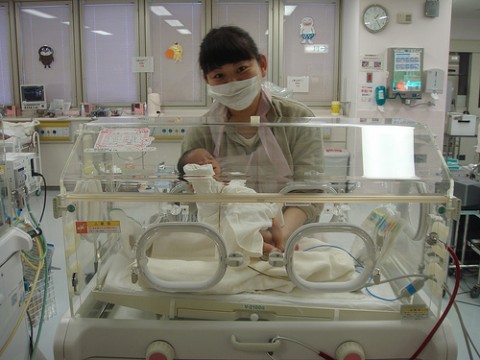Babies who are born premature (before 37 weeks of gestation) may not be able to breathe on their own or may have other health conditions. Some babies develop breathing problems after birth, due to apnea or immature lung development. Other reasons why a baby may be placed in the NICU include:
- feeding difficulties
- trouble staying warm
- intraventricular hemorrhage (bleeding of the brain)
- congenital heart defects
- jaundice
- infection
- intrauterine growth restriction
What happens in the NICU?

The NICU can be an overwhelming place for parents. There will be a special bed setup for each baby, which is called an isolette. The bed usually has a plastic covering with small holes in the sides. The heat inside the isolette is controlled to help keep a baby’s body temperature regulated. Some babies may have feeding tubes or intravenous lines for administering medication and drawing blood. Some babies may also need to breathe with the help of a ventilator, and other babies may require additional monitors or medical equipment.
Who cares for babies in the NICU?
The staff in the NICU is a team of nurses, neonatologists, pediatric hospitalists, respiratory therapists and other medical professionals. A social worker may also be present to help new parents find services, support and resources. Babies are continuously monitored by staff, and some may require routine urine testing or blood work. The staff will devise a plan of care for each baby, and will provide the support and medical treatments that each baby needs.
References:
Spear, M. (2008, June). When your baby’s in the nicu. Retrieved from http://kidshealth.org/parent/system/ill/nicu_caring.html
March of Dimes. Common conditions treated in the neonatal intensive care unit. (n.d.). Retrieved from http://www.babycenter.com/0_common-conditions-treated-in-the-neonatal-intensive-care-uni_10300041.bc?page=1
Neonatal nurse. (n.d.). Retrieved from http://www.nursesource.org/neonatal.html